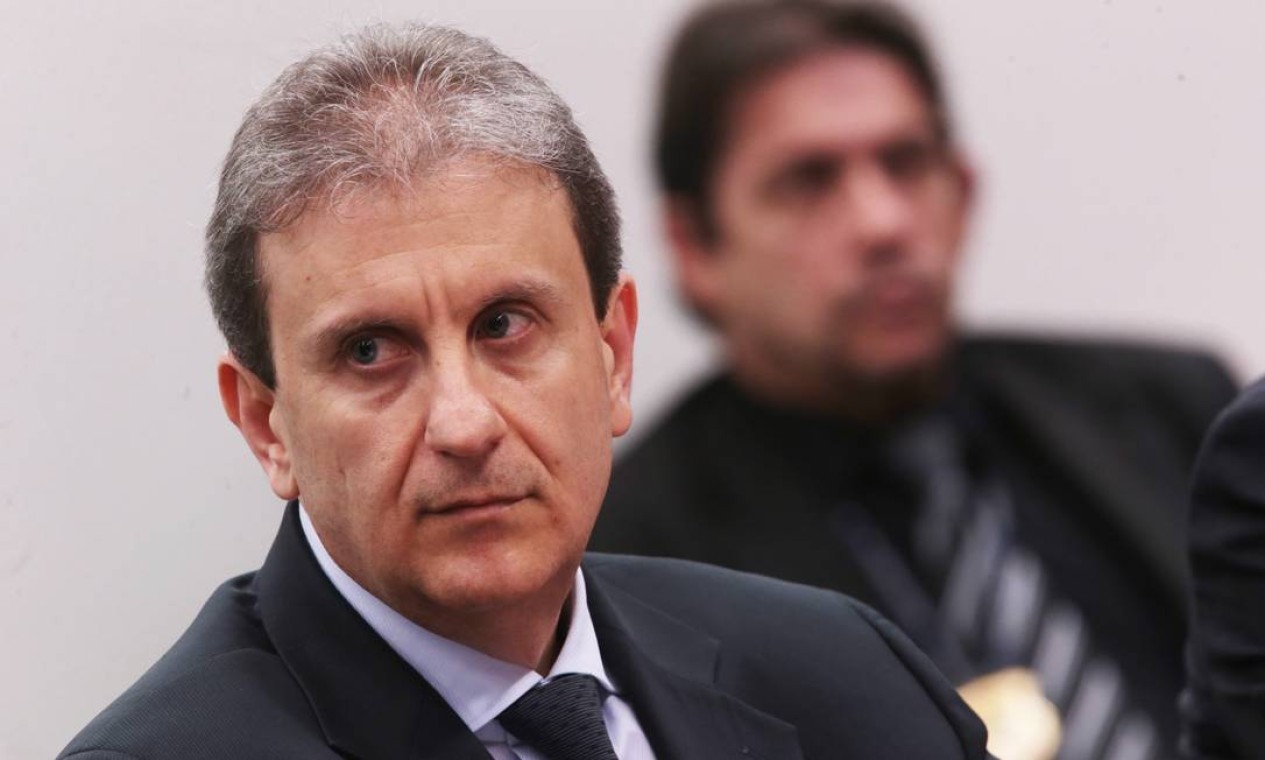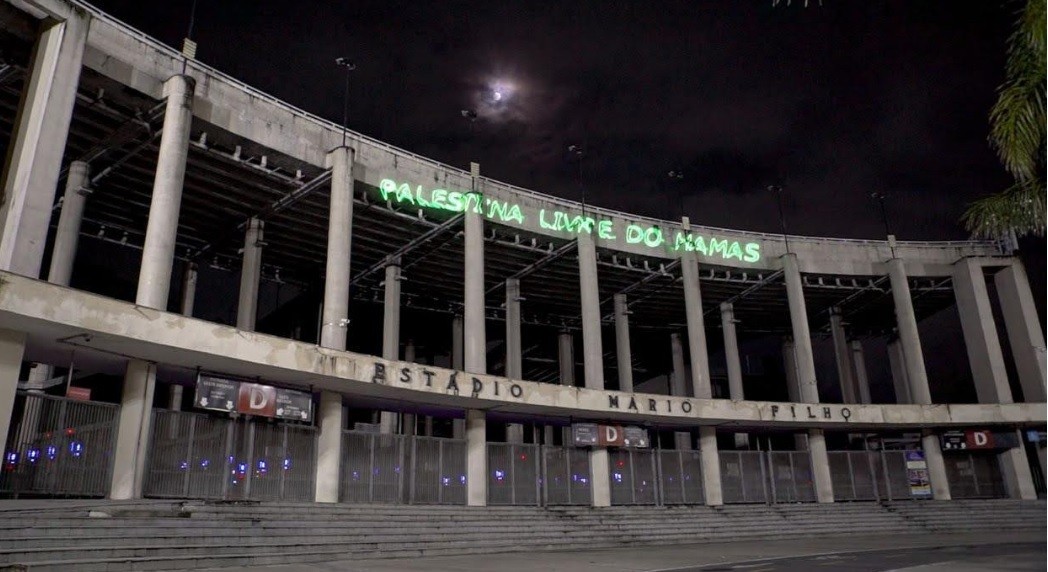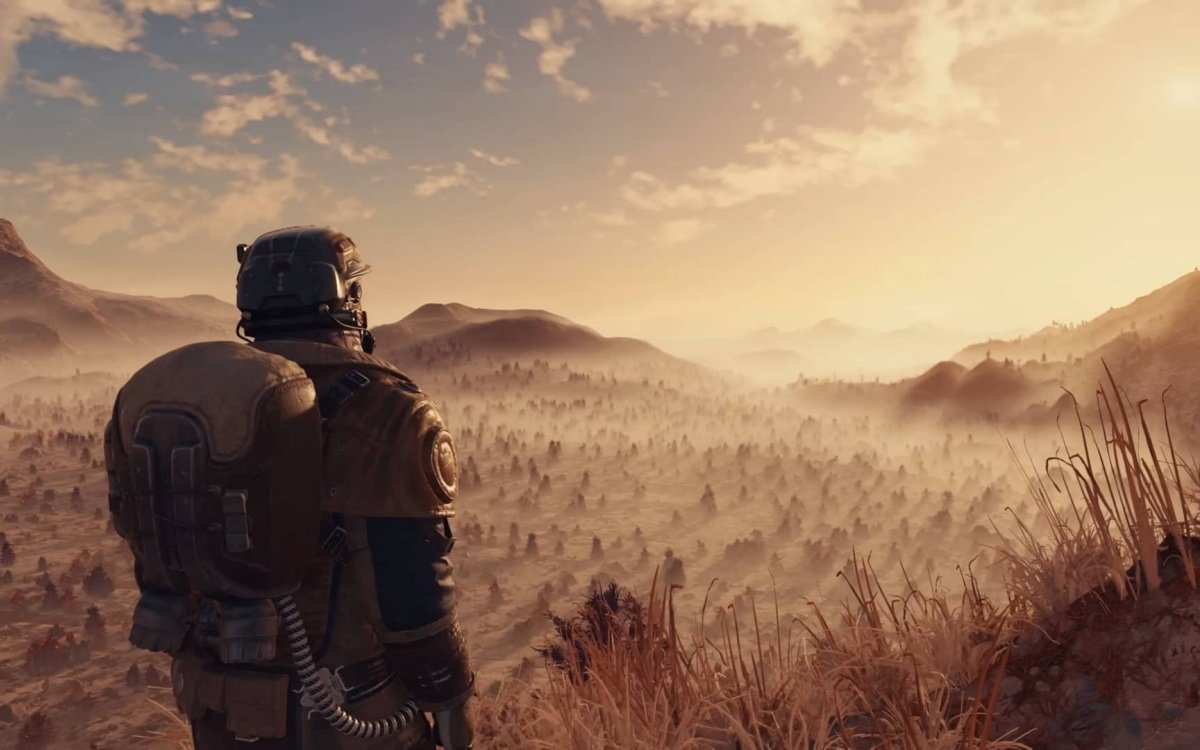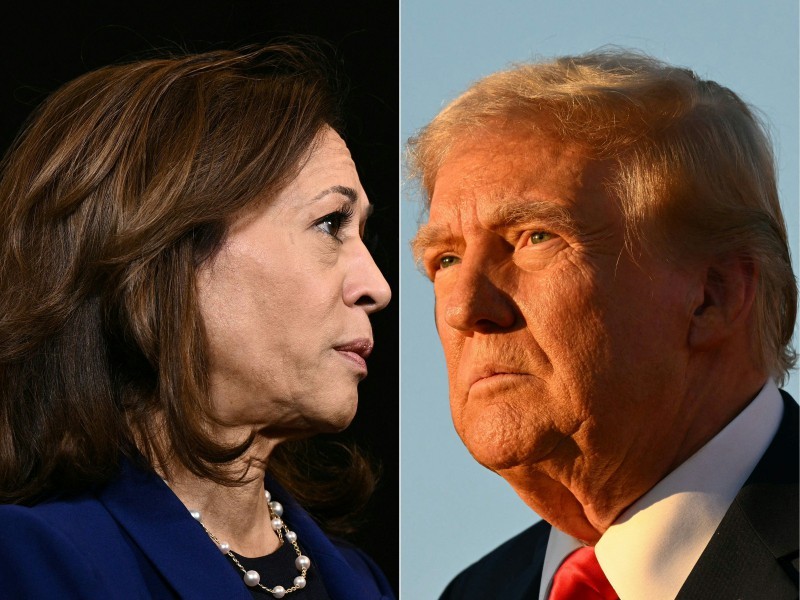G20 Summit was a 'victory for Brazilian diplomacy in a challenging global context, analysts say
The Brazilian presidency managed to negotiate ministerial and presidential declarations, secure the adhesion of 82 countries to the Global Alliance Against Hunger, and even organize a group photo amidst two ongoing wars In a world on high alert due to two escalating wars involving nuclear powers and the recent election of Republican Donald Trump as President of the United States, hosting the G20 Leaders Summit in Rio posed a significant challenge for President Lula's administration and Brazilian diplomacy. According to analysts consulted by GLOBO, not only was this challenge met, but it also marked a diplomatic victory for Brazil. G20: Key points from the summit's final declaration Photos: Lula smiles with all leaders except Milei After a year of negotiations, the Brazilian presidency of the G20 delivered 16 ministerial statements to the heads of state and government, laying a solid foundation for reaching a consensus on a presidential declaration. Additionally, Brazil secured the commitment of 82 countries to the Global Alliance Against Hunger and Poverty, a flagship initiative of Brazil's G20 presidency, including Argentina under Javier Milei, who, despite some dissent, agreed to participate. Finally, with the scenic Rio backdrop, Brazil managed the feat of gathering nearly all the presidents and heads of government attending the summit for an official group photo. Official photo with G20 summit leaders in Brazil after first day of meeting in Rio de Janeiro Domingos Peixoto During the 2022 and 2023 summits in Indonesia and India, respectively, most G20 governments refused to participate in the so-called "family photo" in protest against Russia's invasion of Ukraine. In Rio, using the photo as an opportunity to celebrate the launch of the alliance, the Brazilian government managed to organize two group photos, featuring nearly all leaders present. The first photo, taken on Monday, did not include American Joe Biden, Canadian Justin Trudeau, and Italian Giorgia Meloni. The second, taken on Tuesday, missed Russian Foreign Minister Sergei Lavrov and Milei, who had already left for Argentina. Final day of G20: Lula urges countries to advance climate goals Climate takes a back seat According to Marianna Albuquerque, a professor at the Institute of International Relations and Defense at UFRJ, the only potential shortcoming of the event was the climate issue. — Many of us hoped Brazil would advance on this topic compared to India's presidential declaration, but it wasn’t possible — says the expert. — The pressure from fossil fuel-producing countries was very strong. Indeed, Brazilian government sources confirmed that the climate paragraph in the presidential declaration demanded one of the most time-consuming negotiations. The topic generated more debate than the Russia-Ukraine war and the conflict in Gaza. The final touches to the text were made in the early hours of Sunday, after the sherpas (country representatives) worked overnight to find "consensus formulas" on sensitive G20 issues. The Brazilian delegation was led by Ambassador Mauricio Lyrio, who oversaw a complex negotiation requiring significant creativity. In the final stretch, two words, "infrastructure" and "specifically," helped overcome debates in paragraphs concerning the Russia-Ukraine conflict. Throughout the weekend, following direct instructions from President Lula, the Brazilian sherpa resisted pressure from G7 countries and others to reopen debates on wars and climate, which, as an official source admitted, "could have led to disaster" (i.e., the summit ending without a presidential declaration). — Besides the alliance against hunger, another significant victory for Brazil was the sections of the declaration on bioeconomy. It was determined that countries with natural resources should control the management of this genetic heritage. This includes, for example, forest protection — points out Professor Marianna Albuquerque, who also highlights the important section of the declaration on the need to reform global governance, a demand Brazil has made in various international forums. The approved text by the leaders acknowledges a "lack of representation" of Latin America in the United Nations Security Council, an unprecedented statement. It is noteworthy that several G20 members, including the United States, Russia, China, France, and the United Kingdom, are permanent members of the council. President Lula greets heads of state at G20 in Brazil AFP/Art O GLOBO 'Achievable consensus' Guilherme Casarões, a political scientist and professor at FGV-SP’s School of Business Administration, believes that “Lula invested in achievable consensus.” — On issues like combatting climate change and global governance, even if minimal, important commitments were reached. Brazil emerged stronger from the summit — Casarões points out. The analyst noted that the G20 has always tried to steer its agenda towards economic dimensions, and that Brazil, “through its
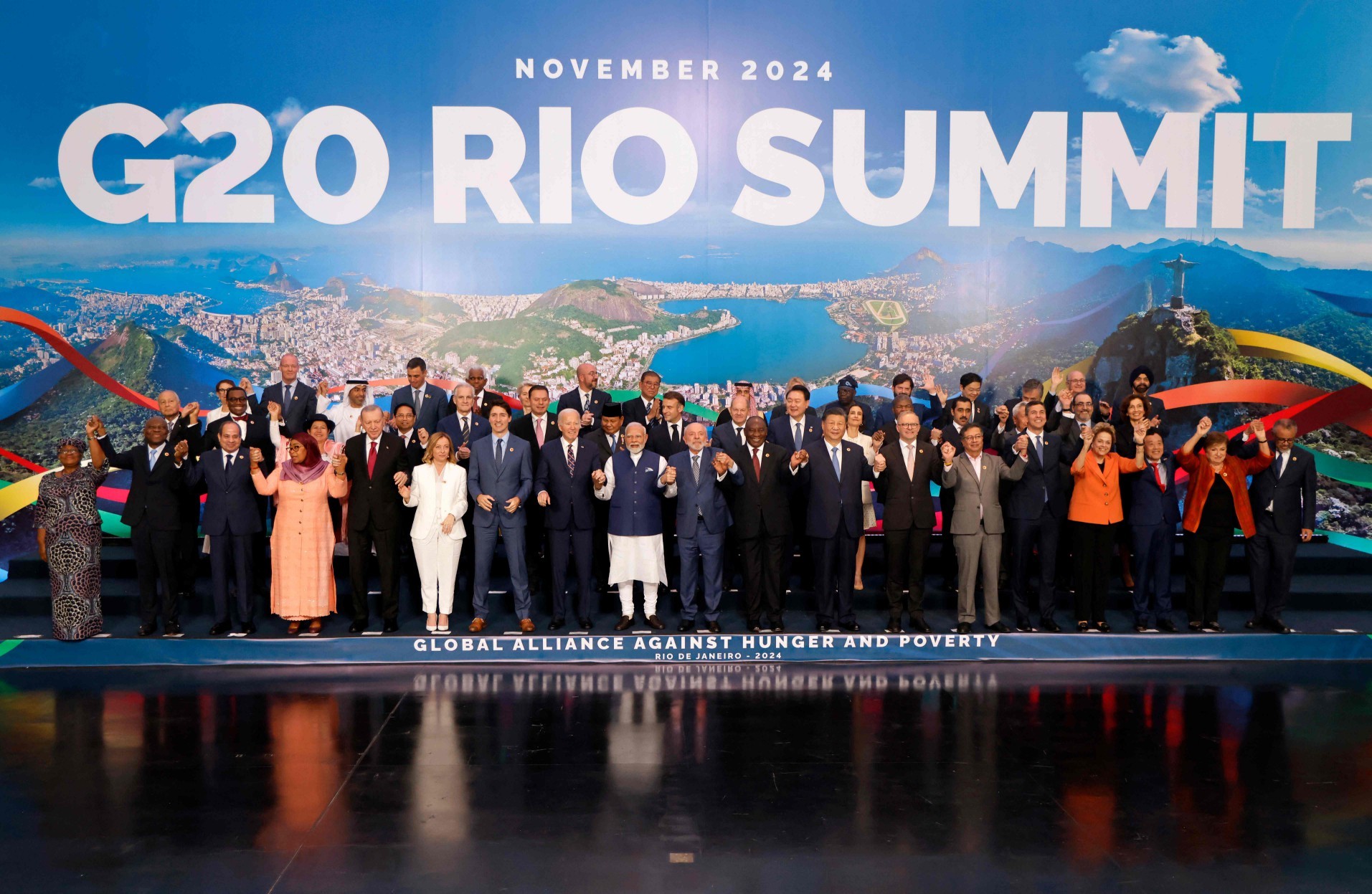

The Brazilian presidency managed to negotiate ministerial and presidential declarations, secure the adhesion of 82 countries to the Global Alliance Against Hunger, and even organize a group photo amidst two ongoing wars In a world on high alert due to two escalating wars involving nuclear powers and the recent election of Republican Donald Trump as President of the United States, hosting the G20 Leaders Summit in Rio posed a significant challenge for President Lula's administration and Brazilian diplomacy. According to analysts consulted by GLOBO, not only was this challenge met, but it also marked a diplomatic victory for Brazil. G20: Key points from the summit's final declaration Photos: Lula smiles with all leaders except Milei After a year of negotiations, the Brazilian presidency of the G20 delivered 16 ministerial statements to the heads of state and government, laying a solid foundation for reaching a consensus on a presidential declaration. Additionally, Brazil secured the commitment of 82 countries to the Global Alliance Against Hunger and Poverty, a flagship initiative of Brazil's G20 presidency, including Argentina under Javier Milei, who, despite some dissent, agreed to participate. Finally, with the scenic Rio backdrop, Brazil managed the feat of gathering nearly all the presidents and heads of government attending the summit for an official group photo. Official photo with G20 summit leaders in Brazil after first day of meeting in Rio de Janeiro Domingos Peixoto During the 2022 and 2023 summits in Indonesia and India, respectively, most G20 governments refused to participate in the so-called "family photo" in protest against Russia's invasion of Ukraine. In Rio, using the photo as an opportunity to celebrate the launch of the alliance, the Brazilian government managed to organize two group photos, featuring nearly all leaders present. The first photo, taken on Monday, did not include American Joe Biden, Canadian Justin Trudeau, and Italian Giorgia Meloni. The second, taken on Tuesday, missed Russian Foreign Minister Sergei Lavrov and Milei, who had already left for Argentina. Final day of G20: Lula urges countries to advance climate goals Climate takes a back seat According to Marianna Albuquerque, a professor at the Institute of International Relations and Defense at UFRJ, the only potential shortcoming of the event was the climate issue. — Many of us hoped Brazil would advance on this topic compared to India's presidential declaration, but it wasn’t possible — says the expert. — The pressure from fossil fuel-producing countries was very strong. Indeed, Brazilian government sources confirmed that the climate paragraph in the presidential declaration demanded one of the most time-consuming negotiations. The topic generated more debate than the Russia-Ukraine war and the conflict in Gaza. The final touches to the text were made in the early hours of Sunday, after the sherpas (country representatives) worked overnight to find "consensus formulas" on sensitive G20 issues. The Brazilian delegation was led by Ambassador Mauricio Lyrio, who oversaw a complex negotiation requiring significant creativity. In the final stretch, two words, "infrastructure" and "specifically," helped overcome debates in paragraphs concerning the Russia-Ukraine conflict. Throughout the weekend, following direct instructions from President Lula, the Brazilian sherpa resisted pressure from G7 countries and others to reopen debates on wars and climate, which, as an official source admitted, "could have led to disaster" (i.e., the summit ending without a presidential declaration). — Besides the alliance against hunger, another significant victory for Brazil was the sections of the declaration on bioeconomy. It was determined that countries with natural resources should control the management of this genetic heritage. This includes, for example, forest protection — points out Professor Marianna Albuquerque, who also highlights the important section of the declaration on the need to reform global governance, a demand Brazil has made in various international forums. The approved text by the leaders acknowledges a "lack of representation" of Latin America in the United Nations Security Council, an unprecedented statement. It is noteworthy that several G20 members, including the United States, Russia, China, France, and the United Kingdom, are permanent members of the council. President Lula greets heads of state at G20 in Brazil AFP/Art O GLOBO 'Achievable consensus' Guilherme Casarões, a political scientist and professor at FGV-SP’s School of Business Administration, believes that “Lula invested in achievable consensus.” — On issues like combatting climate change and global governance, even if minimal, important commitments were reached. Brazil emerged stronger from the summit — Casarões points out. The analyst noted that the G20 has always tried to steer its agenda towards economic dimensions, and that Brazil, “through its diplomacy, managed to include significant political topics in the declaration.” — In foreign policy, there are rule makers and rule takers. On issues of interest to Brazil, we became rule makers, endorsing principles that could help establish future regulatory frameworks — concludes Casarões, who notes that Argentina “could have caused more disruption, but Milei, after much noise, left defeated.” Now, the question is what South Africa, which takes over the G20 presidency in December, will do in 2025 with Republican Donald Trump back in charge of the United States. Analysts' only hope is that the U.S., set to chair the G20 in 2026, will not boycott everything achieved by Brazil and proposed by the South Africans in the name of their future leadership of the group. The translation of this text into english was carried out by Project Irineu, O GLOBO's initiative to develop artificial intelligence tools. Here is the link to the original report.
Qual é a sua reação?







